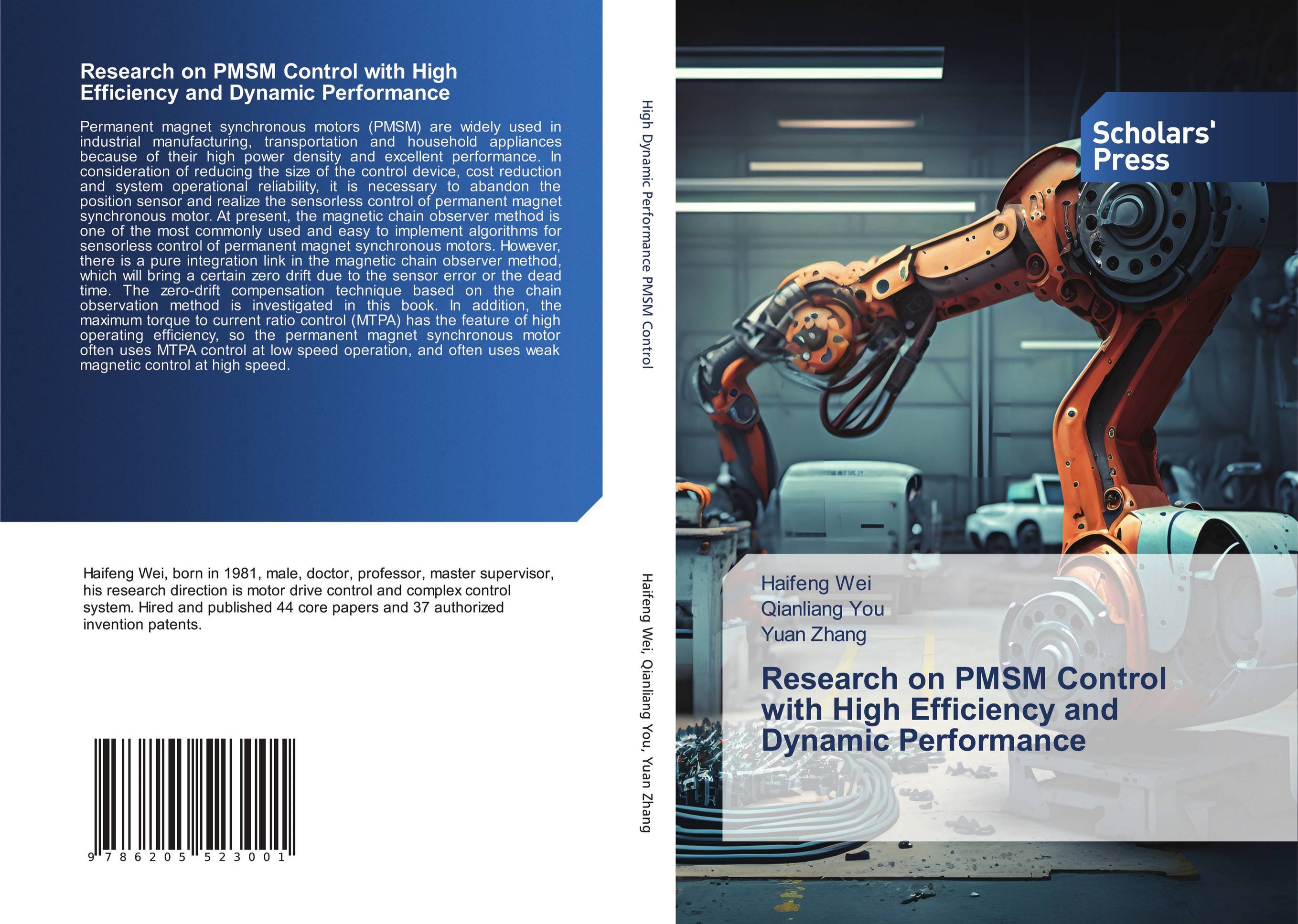| Поиск по каталогу |
|
(строгое соответствие)
|
- Профессиональная
- Научно-популярная
- Художественная
- Публицистика
- Детская
- Искусство
- Хобби, семья, дом
- Спорт
- Путеводители
- Блокноты, тетради, открытки
Research on PMSM Control with High Efficiency and Dynamic Performance.

В наличии
| Местонахождение: Алматы | Состояние экземпляра: новый |

Бумажная
версия
версия
Автор: Haifeng Wei,Qianliang You and Yuan Zhang
ISBN: 9786205523001
Год издания: 1905
Формат книги: 60×90/16 (145×215 мм)
Количество страниц: 216
Издательство: Scholars' Press
Цена: 57306 тг
Положить в корзину
Позиции в рубрикаторе
Отрасли экономики:Код товара: 759382
| Способы доставки в город Алматы * комплектация (срок до отгрузки) не более 2 рабочих дней |
| Самовывоз из города Алматы (пункты самовывоза партнёра CDEK) |
| Курьерская доставка CDEK из города Москва |
| Доставка Почтой России из города Москва |
Аннотация: Permanent magnet synchronous motors (PMSM) are widely used in industrial manufacturing, transportation and household appliances because of their high power density and excellent performance. In consideration of reducing the size of the control device, cost reduction and system operational reliability, it is necessary to abandon the position sensor and realize the sensorless control of permanent magnet synchronous motor. At present, the magnetic chain observer method is one of the most commonly used and easy to implement algorithms for sensorless control of permanent magnet synchronous motors. However, there is a pure integration link in the magnetic chain observer method, which will bring a certain zero drift due to the sensor error or the dead time. The zero-drift compensation technique based on the chain observation method is investigated in this book. In addition, the maximum torque to current ratio control (MTPA) has the feature of high operating efficiency, so the permanent magnet synchronous motor often uses MTPA control at low speed operation, and often uses weak magnetic control at high speed.
Ключевые слова: Permanent magnet synchronous motor, position sensorless, zero drift compensation, rotor position estimation, magnetic chain observer, maximum torque to current ratio, weak magnetic control, segment fitting, Predictive control



